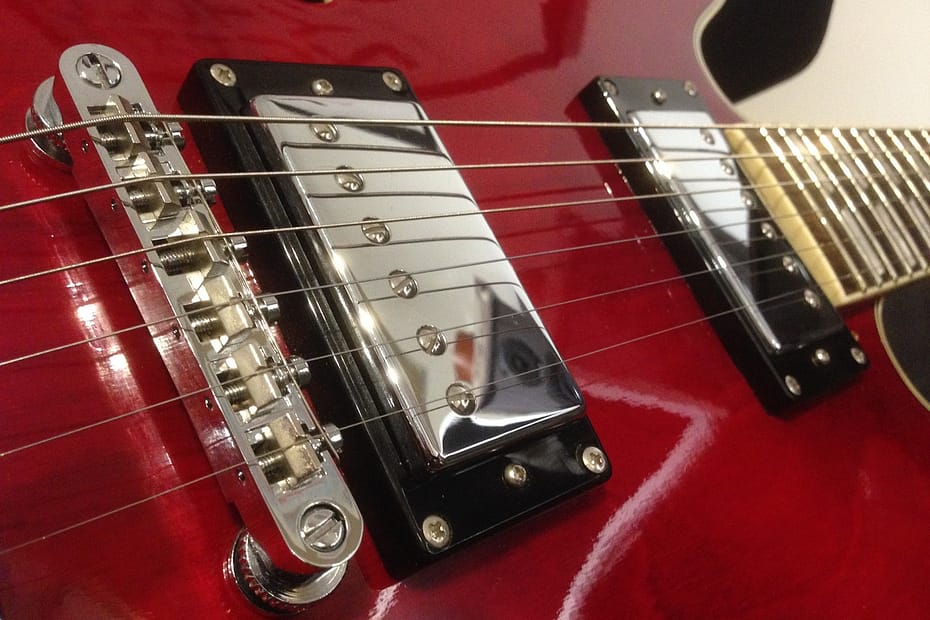You probably have seen their product slung over the neck of one your favourite musicians. Growing up I loved listening to 70’s rock bands, yet I would not be able to notice the difference between a Gibson guitar and a $50 plywood electric version. But the musicians did.
Favourites of mine like Marc Bolan, Eric Clapton, and David Bowie or through to modern musicians today all went out of their way to play a Gibson. Chuck Berry even had his favourite Gibson nailed to the lid of his coffin! Wikipedia list of Gibson players https://en.wikipedia.org/wiki/List_of_Gibson_players Even today the company sells 1 in 5 of all the worlds guitars.
So how does it come to be $500 million in debt and having to file for bankruptcy? Guitar-Maker Gibson Brands Files for Bankruptcy – Wall Street Journal – “The decision to re-focus on our core business, musical instruments, combined with the significant support from our noteholders, we believe will assure the company’s long-term stability and financial health,” Henry Juszkiewicz, Gibson chairman, and CEO, said in a news release.
Poor strategic decisions that ultimately damaged or diluted the brand. The guitar brand will live on after all the proceedings, it is generating healthy revenue and on its own can likely turn a profit. – “The brand name and company’s reputation for making guitars is tarnished, but not dead by any means, and it’s very much capable of being resuscitated. It is one of the most widely recognized brand names on planet Earth,” said George Gruhn of Gruhn Guitars, a world-famous vintage instrument store quoted in a CBC article.
So where did the Gibson brand go wrong and how you can learn from their mistakes and not go down the same path with your personal brand?
Follow these steps so your personal brand does not FAIL
1. Not Your Expertise – Focus
At some point, it was decided to pivot and become a ‘Lifestyle Brand’ even deciding to drop the ‘Guitar’ from the brand name. The company then went on a buying spree of headphones and audio companies, including Phillips consumer electronic business. This has hemorrhaged money for the company and is the main reason for its current state.
Personal Brand Lesson: Focus. Stick to your knitting as the saying goes. If you have built a significant brand and it continues to be in demand remain focused on what you do well and double down on that. Distractions are appealing and exciting but also rife with pitfalls.
2. Not Watching the Trends – Anticipate
Although headphones and audio may have seemed like a connection to its core business, the market is extremely competitive and dominated by in-demand players like ‘Beats’, and their purchase by Apple was a much more logical brand extension.
Taking the Apple example a stage further, look at the success of the app store. Gibson should have looked at the next generation of customers and seen what opportunities there were for app development around music creation.
Personal Brand Lesson: Try to determine the difference between a shiny object and a real market opportunity. Gibson has been around for over 100 years so they know their current customers are not going to be their future ones. Look at your business the same way and think about who is going to be buying from you in 10 and 20 years time and what are they going to be demanding.
3. Not Being the Customer – Innovate
Even in its successful core business Gibson made errors. They were revered for their sound and tone, the professionals choice and yet they introduced a ‘self-tuning’ feature that was not a demanded by its core customer base and actually turned people off the products.
Personal Brand Lesson: Because you think its a good idea does not mean your customers will. Take the time to survey and poll them, ask what they are looking for and then figure out how to deliver. The core of your brand is the reason people come to you and not someone else who says they do what you do, never ignore that.
4. Not Open to Feedback – Listen
Gibson was always viewed as a premium option. Yet some of the other guitar manufacturers heard a need from customers for lower cost options and delivered on them. Gibson chose to ignore this and handed over a much larger mainstream market to their competition when perhaps they could have owned it.
Personal Brand Lesson: Whilst it is never a good idea to lower prices there is nothing to say that having a more mainstream option for those that cannot or do not want to invest in the premium option could make a lot of good business sense.
We will always see popular brands fail to make their next transition or make enough wrong steps that they get acquired, but that does not have to mean your personal brand goes the same way.
Be sure to remain focused, anticipate, innovate and listen, then you won’t be a Gibson.
What lessons do you see from other famous brand stumbles that can apply to personal branding?
